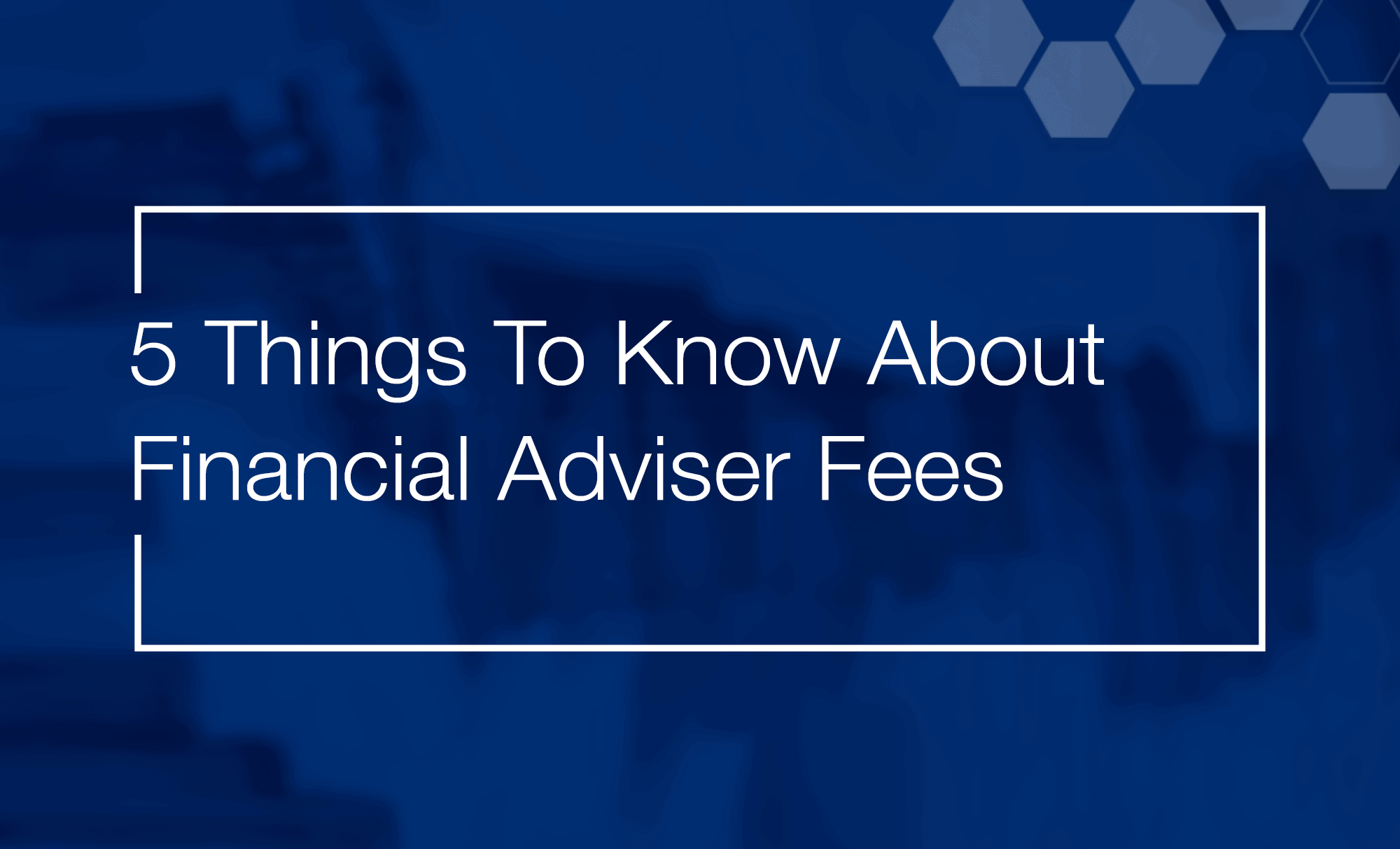Authored by Jimmy Rogers, CFP®
We recently read the Wall Street Journal’s article Say Goodbye to the 1% Investment-Adviser Fee? and want to share a few of our thoughts on a “new trend” highlighted. In fact, this new trend in the advisory business is one of which PDS Planning has been at the forefront, which is that paying the traditional 1% of assets for financial advice is no longer the only option.
At PDS, our clients pay a flat, fixed annual planning fee expressed in dollars and not a percentage of your assets. The fixed, flat fee is based upon the services provided, the complexity of your situation and PDS’ ability to add value.
Most financial planning clients have no idea what they pay in total for both professional and product fees. At PDS, we think it is important that you know exactly what you pay your financial adviser, and why. Here are the 5 things you need to know about financial adviser fees and how they might impact the products your adviser may recommend.
1 Beware of Commission-Based Brokers
Advisers go by many different titles, such as “Financial Planner,” “Financial Adviser,” “Investment Adviser” and “Broker”, and understanding the differences among them can be a challenge for many clients. Most advisers representing big banks, wirehouses, or insurance companies must sell you products or securities to generate revenue in order to stay in business. These advisers earn commissions on products they recommend or when they make a transaction on your behalf. Unfortunately, it is not uncommon for these advisers to suggest products that earn them the highest commission versus providing advice aligned with your financial goals.
2 Fee-Based is Very Different than Fee-Only
Some advisers can be dually registered as both a fiduciary and non-fiduciary. This means they can both charge a fee for financial planning and then use the plan to recommend the purchase of insurance, annuities or mutual funds that can earn the adviser a commission. As illustrated, these dually registered advisers have numerous conflicts of interest and usually charge a much higher overall fee than the traditional 1%.
3 The Traditional 1% Investment Adviser Fee Can Significantly Erode Your Wealth Over Time
As the Wall Street Journal’s article points out, adviser fees have continued to edge up over the last few years. While many people may find a 1% adviser fee insignificant, the fact is a 1% fee compounds over time and can ultimately cost clients hundreds of thousands of dollars over their lifetime. For example, if your plan targets a 5% return to meet your objectives, a 1% fee may reduce your return by 20%! And the larger your portfolio, the more money advisers collect without necessarily having to do more work to earn it.
4 Fee-Only Doesn’t Eliminate Conflicts of Interest
Most fee-only advisers charging a 1% fee will say they’ve eliminated or reduced potential conflicts of interest. However, for many of these advisers their goal is to increase their Assets Under Management (AUM) to measure their firm’s success. Large AUM amounts may simply mean your adviser is good at gathering and retaining assets, but has nothing to do with your adviser’s ability to advise you with your best interests in mind. Consider that advisers who charge 1% of your assets may be more likely to advise you to keep your money under their management, regardless of your goals or best interests.
5 Beware of Being Pitched Expensive Funds by Your Adviser in Hopes of Beating the Market
Because many advisers focus on investing first, with planning as a by-product of the relationship, many feel they need to justify their fee by delivering superior investment performance. Advisers may suggest they can pick better funds or provide access to managers other advisers cannot. However, study after study has shown that most active managers cannot beat the market on a consistent basis. Not to mention that active manager fees are much higher than low-cost, passive index funds, and that active funds are far less tax efficient when compared to passive strategies. Remember fees and taxes significantly impact performance and both are almost always more with active funds than the passive alternatives.
Your trust in and experience with your financial advisor matters – but so do fees. At PDS, we help keep more money in your plan without sacrificing that trust or a great planning experience.
Since 1985, PDS Planning has worked with clients to eliminate the stress often associated with planning their financial future. With over 30 years of experience, we’re experts at optimizing an investment plan to each individual’s highly specific needs and best interest. We’ll work to understand your vision for the short and long-term and provide objective guidance on the proper path to help reach your goals.
Have a question? Let’s connect.
Please remember that past performance may not be indicative of future results. Different types of investments involve varying degrees of risk, and there can be no assurance that any specific investment, strategy, or product or any non-investment related content, made reference to directly or indirectly in this newsletter, will be suitable for your individual situation, or prove successful. This material is distributed by PDS Planning, Inc. and is for information purposes only. Although information has been obtained from and is based upon sources PDS Planning believes to be reliable, we do not guarantee its accuracy. It is provided with the understanding that no fiduciary relationship exists because of this report. Opinions expressed in this report are not necessarily the opinions of PDS Planning and are subject to change without notice. PDS Planning assumes no liability for the interpretation or use of this report. Consultation with a qualified investment advisor is recommended prior to executing any investment strategy. No portion of this publication should be construed as legal or accounting advice. If you are a client of PDS Planning, please remember to contact PDS Planning, Inc., in writing, if there are any changes in your personal/financial situation or investment objectives. All rights reserved.




